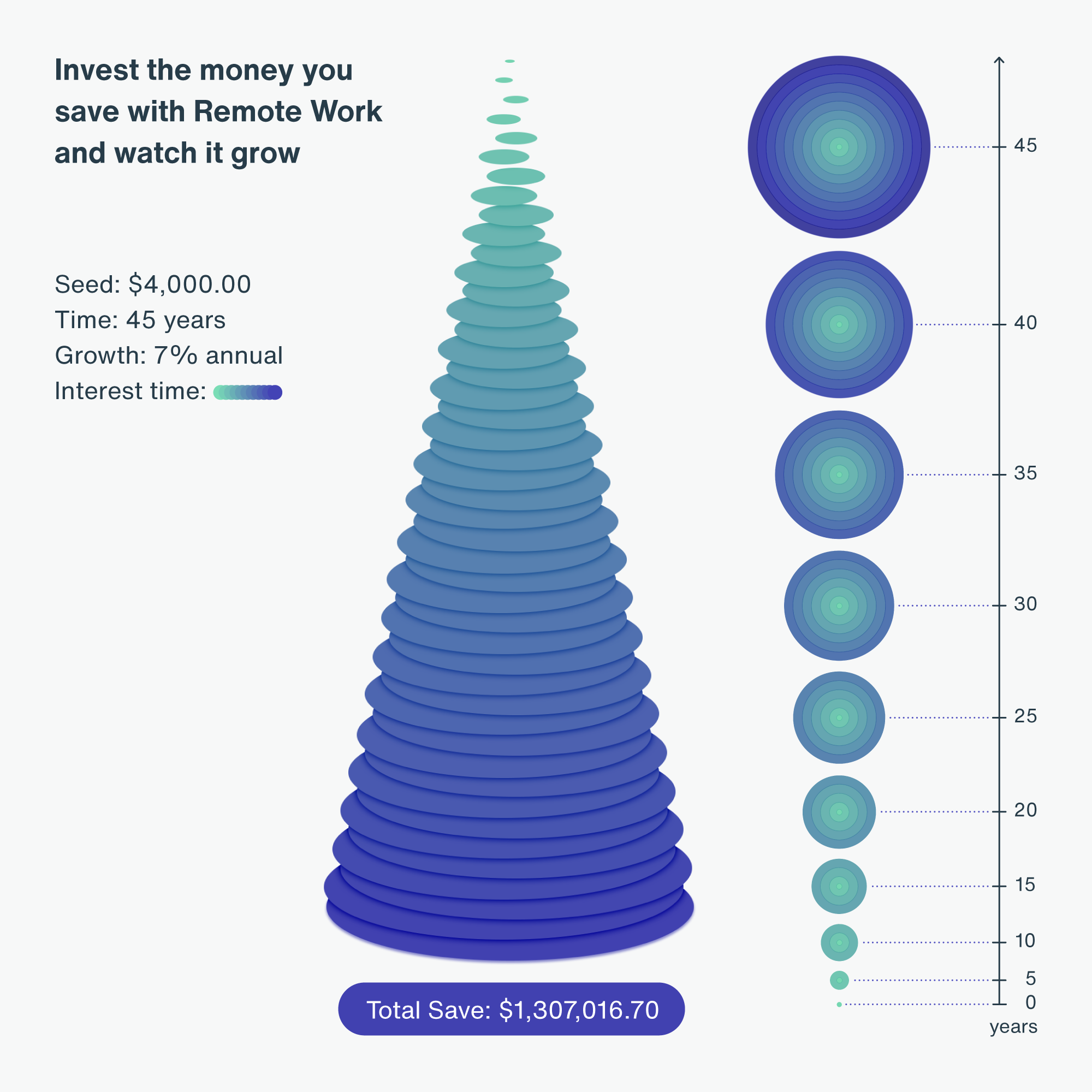Save money (and the Earth)
The definition of a win-win.
5 min read
Save (everyone) money
No tech-hub tax
We talked earlier about how modern talent loves remote work so much, that they will in fact take lower salaries for it. That’s a lot of savings for a company that otherwise would have been paying San Francisco salaries. There is quite a debate around remote work salary adjustments, but for now, we will make just a few arguments.
- Salaries in many cities must be high to afford the cost of living there.
- Workers usually don’t want to live in the most expensive locations in the world.
- Workers at the very least must make a tradeoff when deciding where to live, resulting in a real monetary loss.
Many complain that it’s unfair to adjust salaries for remote work. This only applies if you are lowering the rate by such a level, that it prevents employees from living where they’d like. In reality, this is a non-issue. Remote companies still must be competitive. If they go too low, they’ll lose out on the top talent.

Physical offices are really expensive
This is a truth we have always known. Meeting rooms are expensive. So is office space. Why do you think the “open office space” concept took off, even though most people actually hate it? Hint: it’s a clever way to cram a bunch of people into a small space without cubicles.
If you are still operating physically, there’s an easy exercise to grasp this: ask your CFO for a comprehensive expenditure list of the working space.
Here are some things that can usually be found on that list:
- Office rent
- Furniture
- Office supplies
- Insurance for everything you bought
- Utility costs (electricity heating/cooling, water + sewage, etc.)
- Cleaning services
- Lounge food and coffee that doesn’t suck
- Transportation costs (if you are a company that pays this).
By the way, this massive cost makes scaling way scarier. Bumping up your team involves increasing the office space (and subsequently the costs), as well. Typically, you have to commit to a 1+ year lease as well. So you better be EXTREMELY certain before you jump. Usually, this means companies jump too late at the cost of cramming your team into a space like sardines.

Save (everyone) money
No tech-hub tax
We talked earlier about how modern talent loves remote work so much, that they will in fact take lower salaries for it. That’s a lot of savings for a company that otherwise would have been paying San Francisco salaries. There is quite a debate around remote work salary adjustments, but for now, we will make just a few arguments.
- Salaries in many cities must be high to afford the cost of living there.
- Workers usually don’t want to live in the most expensive locations in the world.
- Workers at the very least must make a tradeoff when deciding where to live, resulting in a real monetary loss.
Many complain that it’s unfair to adjust salaries for remote work. This only applies if you are lowering the rate by such a level, that it prevents employees from living where they’d like. In reality, this is a non-issue. Remote companies still must be competitive. If they go too low, they’ll lose out on the top talent.

Physical offices are really expensive
This is a truth we have always known. Meeting rooms are expensive. So is office space. Why do you think the “open office space” concept took off, even though most people actually hate it? Hint: it’s a clever way to cram a bunch of people into a small space without cubicles.
If you are still operating physically, there’s an easy exercise to grasp this: ask your CFO for a comprehensive expenditure list of the working space.
Here are some things that can usually be found on that list:
- Office rent
- Furniture
- Office supplies
- Insurance for everything you bought
- Utility costs (electricity heating/cooling, water + sewage, etc.)
- Cleaning services
- Lounge food and coffee that doesn’t suck
- Transportation costs (if you are a company that pays this).
By the way, this massive cost makes scaling way scarier. Bumping up your team involves increasing the office space (and subsequently the costs), as well. Typically, you have to commit to a 1+ year lease as well. So you better be EXTREMELY certain before you jump. Usually, this means companies jump too late at the cost of cramming your team into a space like sardines.

Thank you for subscribing!
Subscribe to Building Remotely updates to get:
- Alerted for new podcasts and articles
- Summaries of our best insights from remote leaders
- Book chapters as they’re released

